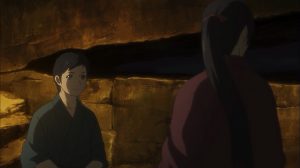 I’m not sure there’s a lot I can add to that, really. In the rarified air of brilliant anime episodes this is another one of Seirei no Moribito’s that’s right up at the summit of Everest, but they’re hard to write about. It’s not like an episode like this needs any help – it tells its story about as eloquently and succinctly as it can be told. That makes me want to just shut up and let it sparkle.
I’m not sure there’s a lot I can add to that, really. In the rarified air of brilliant anime episodes this is another one of Seirei no Moribito’s that’s right up at the summit of Everest, but they’re hard to write about. It’s not like an episode like this needs any help – it tells its story about as eloquently and succinctly as it can be told. That makes me want to just shut up and let it sparkle.
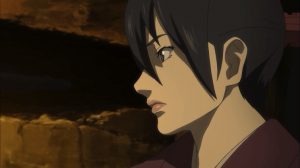 One thing I will say is that I think it’s wonderful that Kamiyama Kenji thought this was an episode that needed to be made. It’s a classic Moribito decision – this episode is non-essential to the plot in practical terms. It would be hugely important if future novel adaptations were involved, but Kamiyama had to have a pretty good idea by this point that this was unlikely. It amounts to one of seemingly endless choices that were made simply because they made this a better series and for no other reason – something that seems almost unimaginable in anime these days.
One thing I will say is that I think it’s wonderful that Kamiyama Kenji thought this was an episode that needed to be made. It’s a classic Moribito decision – this episode is non-essential to the plot in practical terms. It would be hugely important if future novel adaptations were involved, but Kamiyama had to have a pretty good idea by this point that this was unlikely. It amounts to one of seemingly endless choices that were made simply because they made this a better series and for no other reason – something that seems almost unimaginable in anime these days.
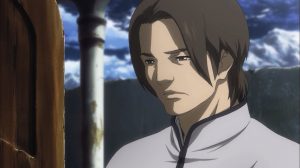 What a terrible story it is that Balsa shares with Chagum in Hunter’s Cave this night, too. Her father (I’d forgotten he was Fujiwara Keiji, which gave me a bit of an emotional start) is blameless in this – it was the vile Logsam that forced his hand. But what he asks of his friend Jiguro (Nishi Rintarou, who of course also narrates the episode previews) is likewise terrible. He asks Jiguro to give up everything – his title, his honor, his home, probably his very life – for a child who isn’t his own. It’s a testament to the sort of man Jiguro is that he decides to do just that, despite initially refusing.
What a terrible story it is that Balsa shares with Chagum in Hunter’s Cave this night, too. Her father (I’d forgotten he was Fujiwara Keiji, which gave me a bit of an emotional start) is blameless in this – it was the vile Logsam that forced his hand. But what he asks of his friend Jiguro (Nishi Rintarou, who of course also narrates the episode previews) is likewise terrible. He asks Jiguro to give up everything – his title, his honor, his home, probably his very life – for a child who isn’t his own. It’s a testament to the sort of man Jiguro is that he decides to do just that, despite initially refusing.
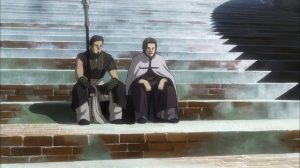 It’s easy to see why this experience scarred Balsa for life. Jiguro gave up everything for her – and that was just the start of it. He was also forced to kill his comrades who Logsam sends to follow them, including his best friend Tagul (getting Tachiki Fumihiko for such a small role is so Moribito) and she was unable to do anything to prevent it. Balsa sees what this does to Jiguro – every time he kills one of the King’s Spears he kills a little bit of himself. But he bears this pain in silence, because he’s doing what must be done, and only he can do.
It’s easy to see why this experience scarred Balsa for life. Jiguro gave up everything for her – and that was just the start of it. He was also forced to kill his comrades who Logsam sends to follow them, including his best friend Tagul (getting Tachiki Fumihiko for such a small role is so Moribito) and she was unable to do anything to prevent it. Balsa sees what this does to Jiguro – every time he kills one of the King’s Spears he kills a little bit of himself. But he bears this pain in silence, because he’s doing what must be done, and only he can do.
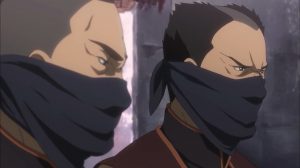 As Balsa tells Chagum this story, it surely occurs to her that in terms of her parenting decisions, the apple hasn’t fallen far from the tree. She seethed because Jiguro rarely told her anything of their situation (though he did reveal the truth after a migrant from Kanbal brought news of her father’s death). Jiguro struck her with shocking force after she revealed that she’d been studying his fighting style despite his refusal to train her. Chagum understands, certainly. In a sense, I think relating all this is Balsa’s way of apologizing to Chagum for not being more considerate of his feelings.
As Balsa tells Chagum this story, it surely occurs to her that in terms of her parenting decisions, the apple hasn’t fallen far from the tree. She seethed because Jiguro rarely told her anything of their situation (though he did reveal the truth after a migrant from Kanbal brought news of her father’s death). Jiguro struck her with shocking force after she revealed that she’d been studying his fighting style despite his refusal to train her. Chagum understands, certainly. In a sense, I think relating all this is Balsa’s way of apologizing to Chagum for not being more considerate of his feelings.
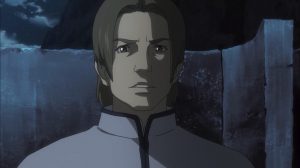 Ultimately this flashback is about the bond between Balsa and Chagum. They share the same frustration of feeling helpless and depending on another for their survival, and not being able to do anything for them. They both long to get closer to their surrogate parent, and are rebuffed by that parent’s emotional wariness. But by doing this Balsa is giving Chagum something Jiguro was never able to give her, because she senses that he’ll need it to survive what’s coming. All Jiguro was able to give Balsa, in the end, was training in the spear arts. This was a terrible burden for him because by doing so, he knew he was condemning her to follow in his footsteps in living a blood-stained life. But he also knew it was necessary to help her survive, which was the point of this whole exercise.
Ultimately this flashback is about the bond between Balsa and Chagum. They share the same frustration of feeling helpless and depending on another for their survival, and not being able to do anything for them. They both long to get closer to their surrogate parent, and are rebuffed by that parent’s emotional wariness. But by doing this Balsa is giving Chagum something Jiguro was never able to give her, because she senses that he’ll need it to survive what’s coming. All Jiguro was able to give Balsa, in the end, was training in the spear arts. This was a terrible burden for him because by doing so, he knew he was condemning her to follow in his footsteps in living a blood-stained life. But he also knew it was necessary to help her survive, which was the point of this whole exercise.
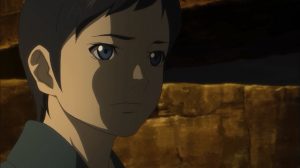 Truly, there’s pathos beyond belief in this entire situation – for Chagum, for Balsa, for Jiguro. And Kamiyama lets it speak for itself, because it doesn’t need to be sold. He shows us the battles between Jiguro and his former comrades in stunning detail, with (as earlier in the series) some of the finest combat choreography and animation anime has and will ever see. Moribito delivers superlative combat scenes in service of the notion that combat is something that should, whenever possible, be avoided. It never fails to remind us of the costs of killing, even for so-called noble reasons.
Truly, there’s pathos beyond belief in this entire situation – for Chagum, for Balsa, for Jiguro. And Kamiyama lets it speak for itself, because it doesn’t need to be sold. He shows us the battles between Jiguro and his former comrades in stunning detail, with (as earlier in the series) some of the finest combat choreography and animation anime has and will ever see. Moribito delivers superlative combat scenes in service of the notion that combat is something that should, whenever possible, be avoided. It never fails to remind us of the costs of killing, even for so-called noble reasons.


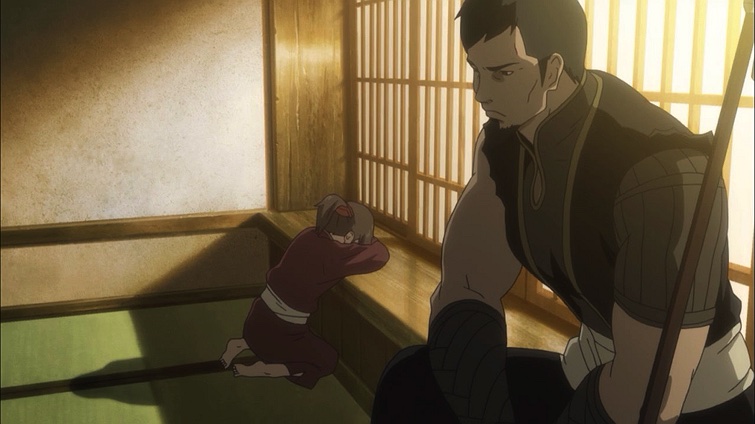
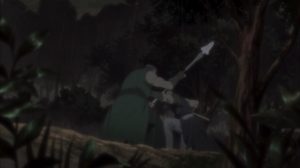

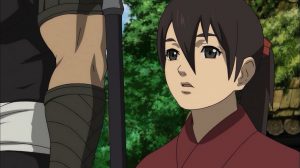
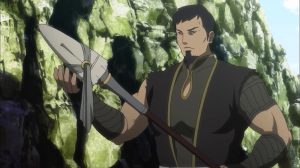
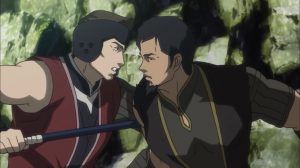
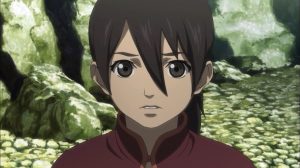

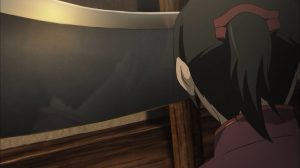

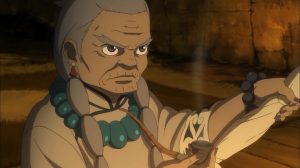
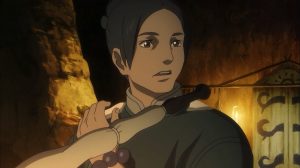
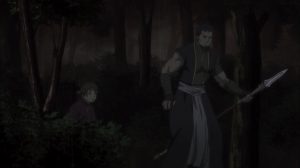
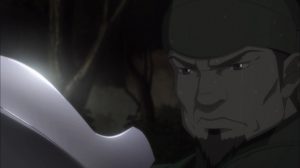
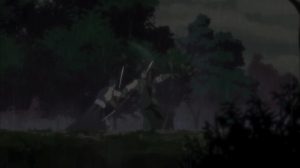
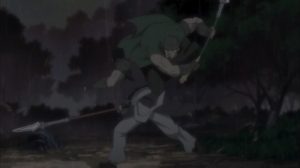

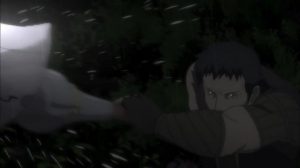
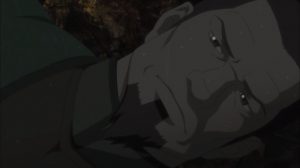
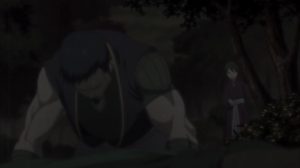
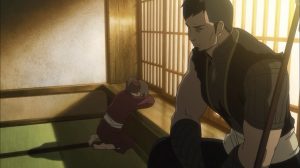
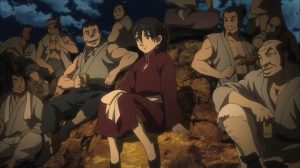
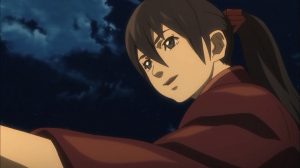

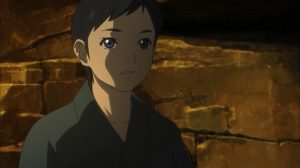
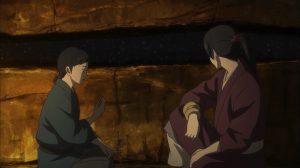
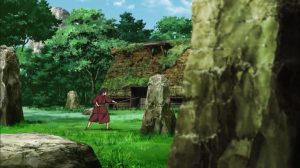
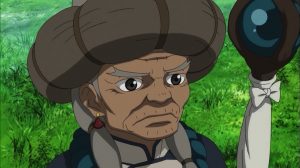


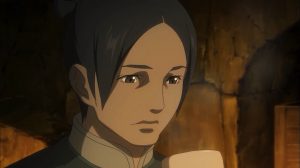

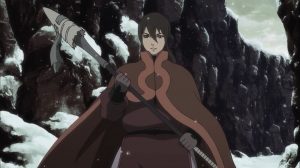

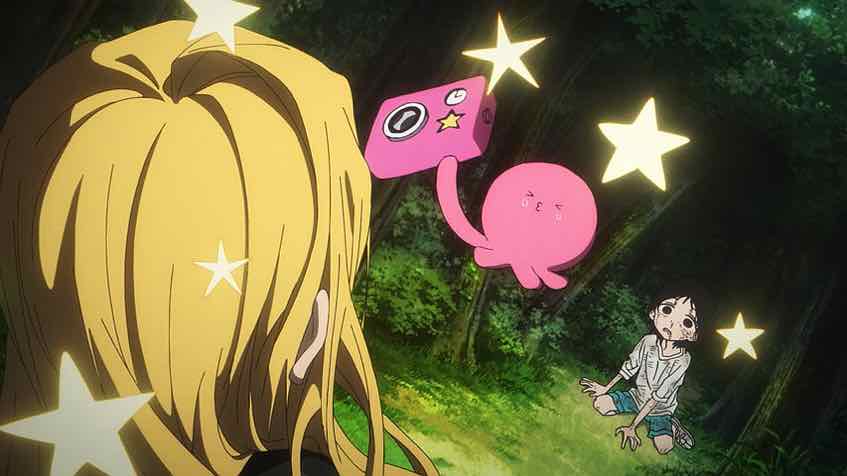
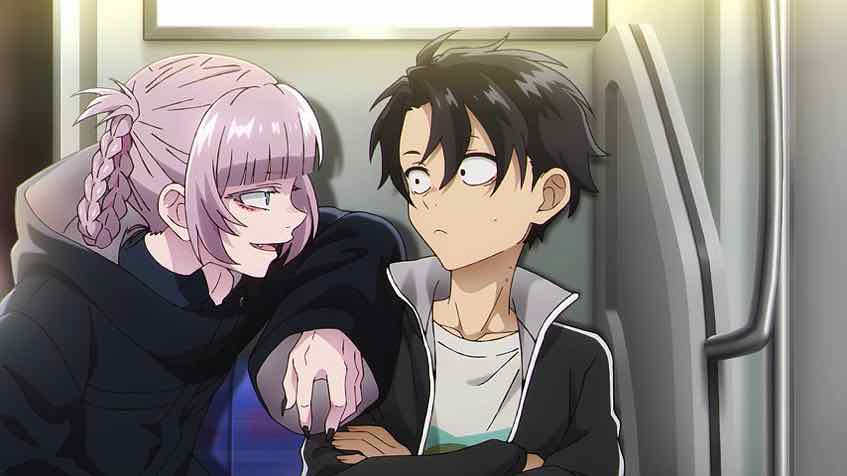
Panino Manino
July 26, 2020 at 10:41 amIt’s a rotten plot.
Couldn’t Balsa’s father talk in private with the King to put him and his daughter in a safe place while the Spears fought against the plot against overthrow him?
But… seeing how Jiguro reacted to all of this, using simple logic would succeed?
Looks like Jiguro didn’t had much of a family of at least was super egoistic. He went to save Balsa more for himself than for his friend. Feels like he was in bad terms with most of the Spear and other people and wanted to use this opportunity to settle the scores in a number of ways. But when he killed someone who he really considered as a friend he realized the gravity of his mistake. By them there was not turning back, nothing could be undone. He ruined the lives of various peoples with his choice and gave reason to be chased and killed.
It was good to rewatch this again to remember and rethink about some things.
And as always excellent execution technically, with attention to detail for the body expression of Balsa and Chagum while they talk.
It’s very clear when things start to fall in place for Chagum and the way she is finally starts to make sense to him.